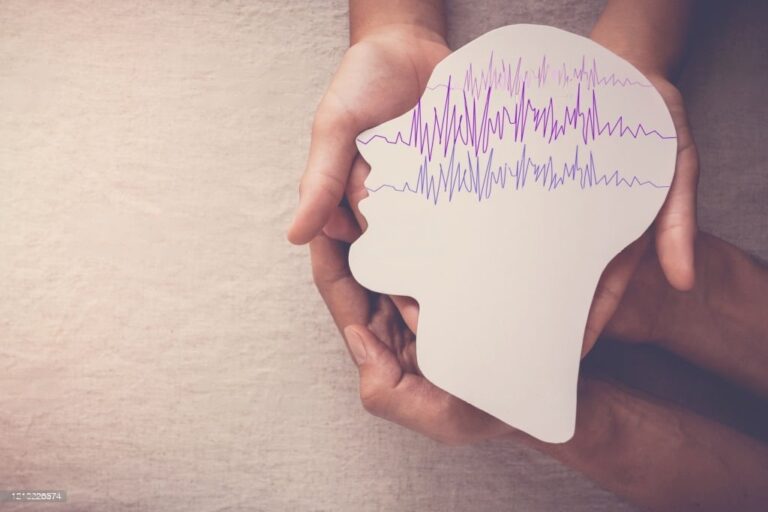The human mind is a complex and intricate system that governs our thoughts, emotions, and behaviors. While most individuals experience typical fluctuations in mental states, some people may face challenges with mental health that require understanding and support.
Mental illnesses are medical conditions that affect a person’s thoughts, feelings, mood, and behavior. This comprehensive guide aims to shed light on various types of mental illnesses, their symptoms, and the importance of seeking help and treatment for those affected.
1. The Prevalence of Mental Illness
Mental illness is more common than many may realize. According to the World Health Organization (WHO), one in four people globally will experience a mental health disorder at some point in their lives. Despite the prevalence, there is still a significant stigma surrounding mental health, which can hinder individuals from seeking help.
2. Mood Disorders
Mood disorders are mental illnesses characterized by disturbances in mood and emotions. The two most common mood disorders are depression and bipolar disorder.
a. Depression
Depression, also known as major depressive disorder, is a pervasive feeling of sadness, emptiness, and hopelessness that lasts for an extended period. It affects a person’s ability to function in daily life and can lead to physical symptoms such as fatigue, changes in appetite, and sleep disturbances.
b. Bipolar Disorder
Bipolar disorder involves extreme mood swings that alternate between depressive episodes and periods of mania or hypomania. During manic phases, individuals may experience elevated mood, increased energy, and impulsive behavior, while depressive phases mirror symptoms of major depression.
3. Anxiety Disorders
Anxiety disorders encompass a group of mental illnesses characterized by excessive worry, fear, and anxiety that disrupt daily life. Some common anxiety disorders include generalized anxiety disorder (GAD), panic disorder, and social anxiety disorder.
a. Generalized Anxiety Disorder (GAD)
GAD involves chronic and excessive worrying about everyday events and situations. Individuals with GAD may find it challenging to control their worries and may experience physical symptoms such as restlessness, muscle tension, and difficulty concentrating.
b. Panic Disorder
Panic disorder is characterized by recurrent and unexpected panic attacks, which are intense episodes of fear and physical discomfort. These attacks can lead to a fear of having more panic attacks, resulting in avoidance behavior.
c. Social Anxiety Disorder
Social anxiety disorder, also known as social phobia, is an intense fear of social situations and scrutiny by others. It can cause individuals to avoid social interactions, leading to isolation and impairment in personal and professional life.
4. Psychotic Disorders
Psychotic disorders involve a detachment from reality and are often associated with hallucinations and delusions.
a. Schizophrenia
Schizophrenia is a severe and chronic psychotic disorder that affects a person’s thoughts, emotions, and behaviors. Here the mental illness symptoms may include hallucinations, delusions, disorganized thinking, and impaired social functioning.
5. Eating Disorders
Eating disorders are mental illnesses that revolve around unhealthy relationships with food and body image.
a. Anorexia Nervosa
Anorexia nervosa is characterized by an intense fear of gaining weight and a distorted body image, leading individuals to restrict their food intake severely.
b. Bulimia Nervosa
Bulimia nervosa involves cycles of binge eating followed by purging behaviors such as vomiting or excessive exercise to compensate for the calories consumed during binge episodes.
c. Binge Eating Disorder
Binge eating disorder is marked by recurrent episodes of binge eating without purging behaviors.
6. Personality Disorders
Personality disorders are characterized by long-term patterns of behavior, thoughts, and emotions that deviate from cultural norms and cause significant distress.
a. Borderline Personality Disorder (BPD)
BPD is a personality disorder marked by unstable relationships, self-image, and emotions. Individuals with BPD may experience intense and abrupt mood swings and engage in impulsive and self-destructive behaviors.
b. Antisocial Personality Disorder (ASPD)
ASPD involves a disregard for the rights and feelings of others, as well as a lack of empathy and remorse. Individuals with ASPD may engage in manipulative and antisocial behaviors.
7. Obsessive-Compulsive Disorder (OCD)
OCD is an anxiety disorder characterized by intrusive, distressing thoughts (obsessions) and repetitive behaviors or rituals (compulsions) performed to alleviate anxiety.
8. Post-Traumatic Stress Disorder (PTSD)
PTSD is a mental health condition triggered by experiencing or witnessing a traumatic event. Symptoms may include flashbacks, nightmares, and avoidance of reminders of the trauma.
9. Seeking Help and Treatment
Recognizing the symptoms of mental illness and seeking help are essential steps toward recovery. Mental illnesses are treatable, and early intervention can lead to better outcomes. Treatment may involve a combination of therapy, medication, lifestyle changes, and support from loved ones.
10. The Importance of Mental Health Awareness
Promoting mental health awareness and reducing stigma are crucial to supporting individuals with mental illnesses. By fostering open conversations and understanding, we can create a more inclusive and supportive society for those facing mental health challenges.
Conclusion
Understanding the different types of mental illnesses and their symptoms is essential for promoting mental health awareness and support. Mental illnesses can affect anyone, and seeking help and treatment is crucial for recovery and improved quality of life.
By breaking down stigmas and fostering a compassionate and understanding environment, we can create a society where mental health is valued, and individuals facing mental health challenges are encouraged to seek the help they need. Remember, mental health matters, and everyone deserves the opportunity to lead a fulfilling and happy life with a healthy mind.


